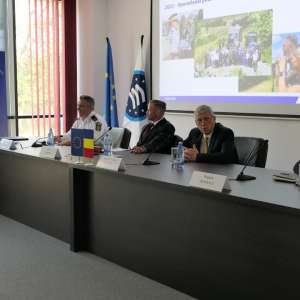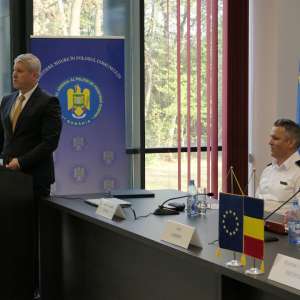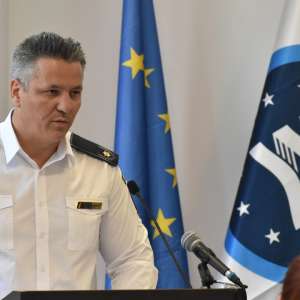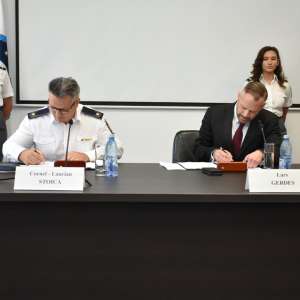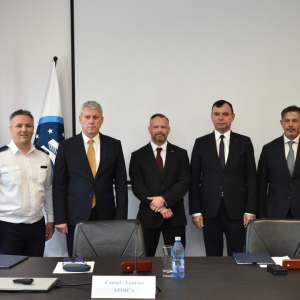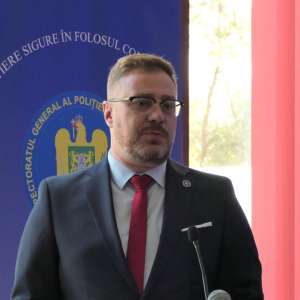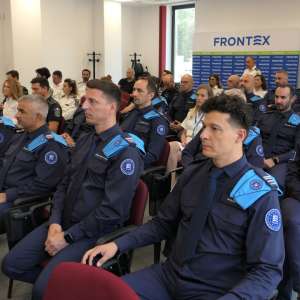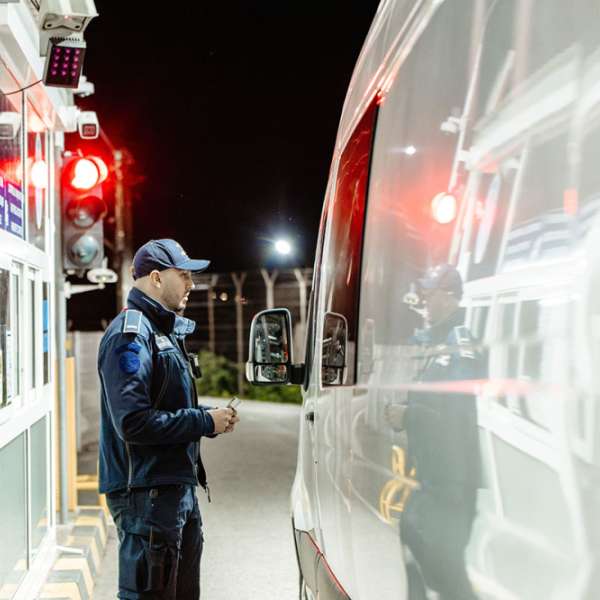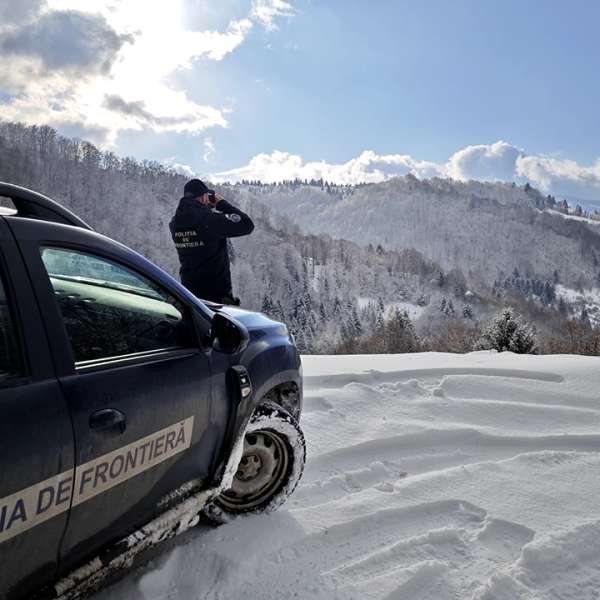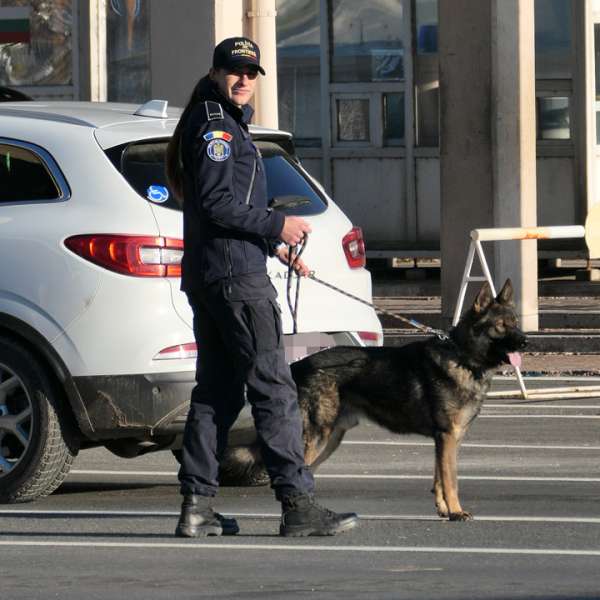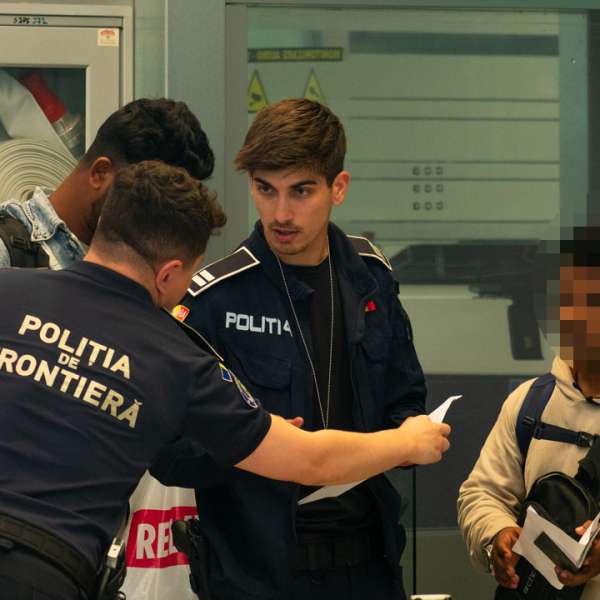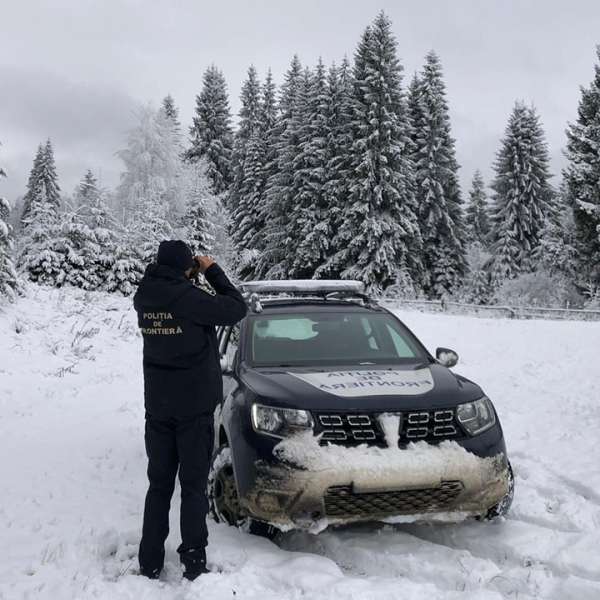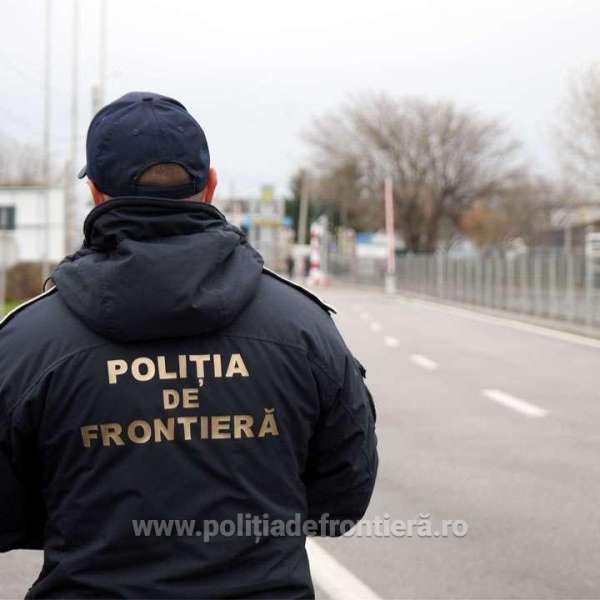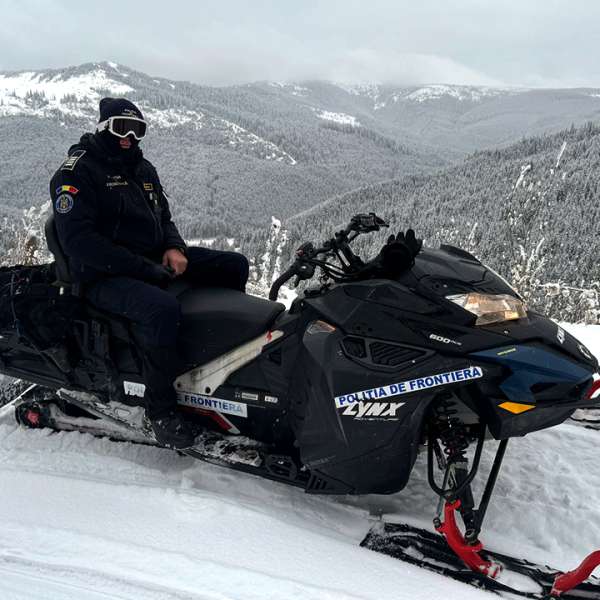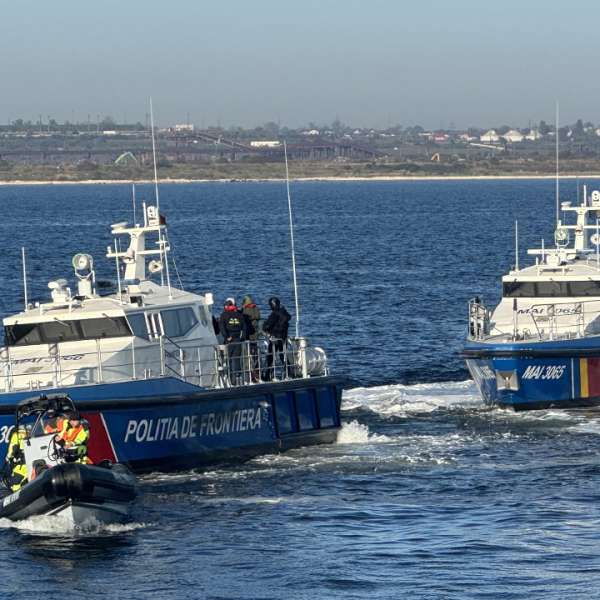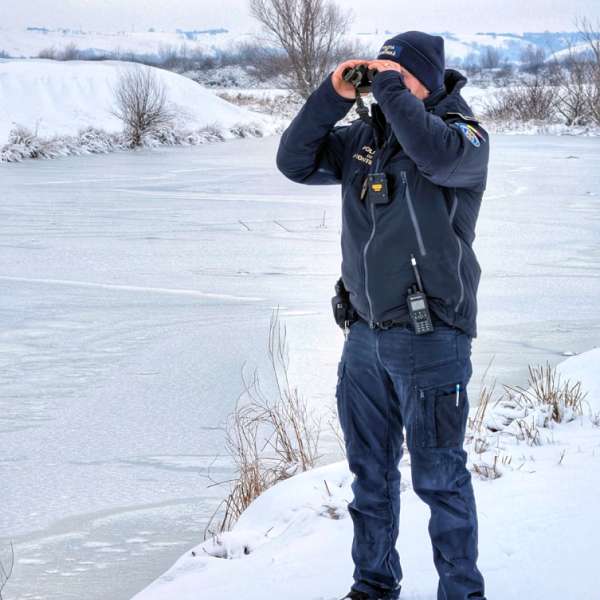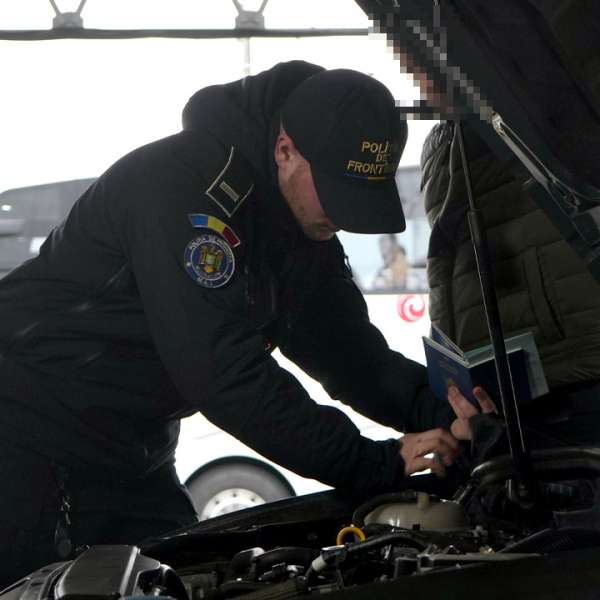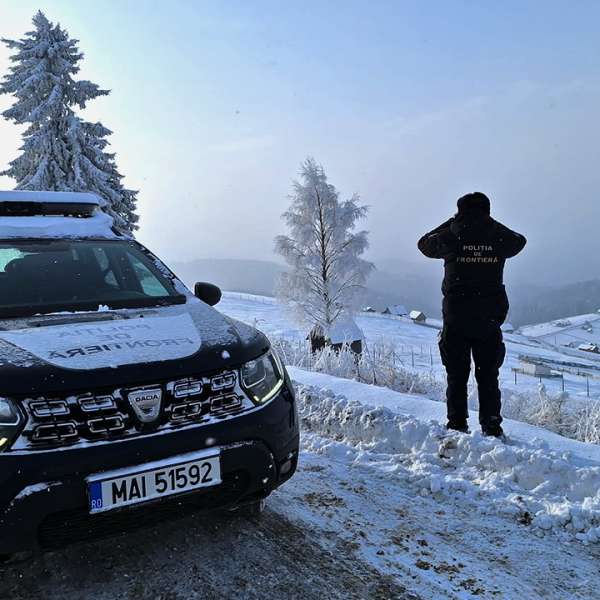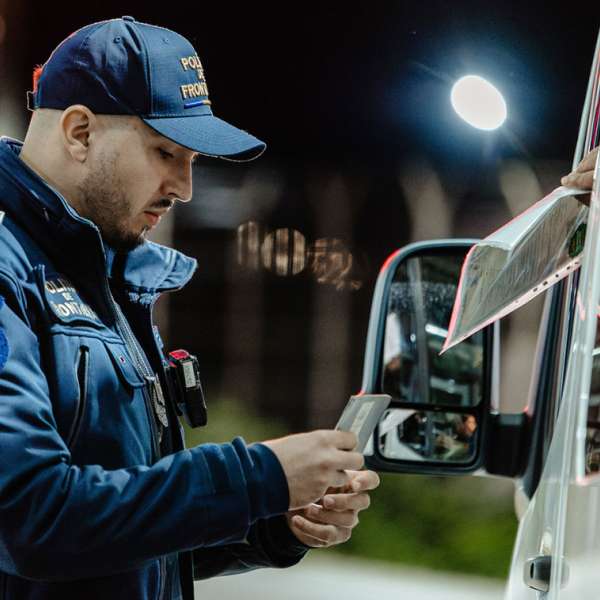Cătălin Predoiu, Minister of Internal Affairs:
Dear colleagues, ladies and gentlemen, as a sign of politeness, I will start in English, but in order not to forget that we are still in Romania, I will end in Romanian.
First of all, I am very honored and proud to be here, with you, on the occasion of the launch of this pilot project of Frontex and Romania. The fact that we are launching this pilot project of Frontex, here in Bucharest, in Romania, has multiple meanings. First of all, it is proof, as already mentioned, of the capacity and expertise of the Romanian Border Police. It is also a sign of Romania's commitment, through the Ministry of Internal Affairs and the Romanian Border Police, to protect Europe's borders and strengthen European institutions.
Romania, through the Ministry of Internal Affairs and the Romanian Border Police, respectively, is the second largest force within Frontex both in terms of troops contributing to operational activities and planning and coordination at Frontex headquarters. If we take into account the figures for Frontex troops, about 2,200, and the number of people we contributed with , about 237 for operational activities, also 115 for planning at the Frontex headquarters, we are the second country present in Frontex.
It's not just about numbers, it's also about work, intense work, done by our colleagues alongside you. We are active in about 13 Frontex operations currently: Terra 2024, Minerva, Indalo, Poseidon, Frontex Situation Center for Air Surveillance, Focal Points Aero, but also in Albania, Croatia, Montenegro, Bulgaria, Italy, North Macedonia and many others .
So we are here not just to be present, but to work, to support the progress of Frontex, and this brings me to the second important meaning of this event today: this pilot project is part of a wider reform, designed by the European Commission, by the European institutions, and it starts here, in Romania.
Tomorrow, Frontex should become an increasingly powerful agency of Europe, with the support of member countries, for the benefit of member countries, for our security, for our effort to protect our way of life, to protect our citizens against the many threats we see today, starting with illegal migration, but also all kinds of international criminal activities, all kinds of vulnerabilities that affect the European status quo and future projects for our citizens.
You have been elected, you are leaders, you will continue to be leaders in this system, and I and we, together with our colleagues, our citizens, expect you to act accordingly and raise the standards of leadership to ever higher levels. higher. It's not just a job what you're doing here, it's not just a pilot project, it's a mission to protect Europe, to protect our borders, it's a mission to strengthen this agency.
You must be proud, and I'm sure you are proud of it, I'm sure you look upon this mission as a noble one, not just a simple service. Therefore, the only thing left for me to say is that, in an official capacity, together with my colleagues, we will continue to support you both here and abroad, and we are sure that your operations will be fully successful, in the benefit of our citizens.
And now, if you allow me, I will address a little exclusively to my Romanian colleagues for certain apparently local matters, but not only. There is nothing secret, you will receive the translation.
I am extremely satisfied with the work of the Border Police. In the previous months, the activity of combating illegal migration was improved, it is our main argument in the continuation of the project of acceding to the Schengen Area.
The following months will be critical for us because it is important to maintain this performance at the level you have reached and we cannot do it otherwise than by continuing on the same path of professionalism, integrity, exigent attitude towards our own activity and towards colleagues' activity.
Keep up the same pace, show the same intransigence towards anything that is outside not only the letter of the law but also its spirit, keep the integrity of the institution and the results will come as they have after these months of hard work.
No human activity, no institution is perfect and we often see, unfortunately, the ones who make a mistake erase everyone's work, but that should only make us more focused, more applied to what we do, more demanding with ourselves and with those around us.
I hope that at the end of these next three or four months we will meet again to find that we have reached our goal. You keep the illegal migration numbers down to where you've got them through hard work in collaboration with the other arms here, and I'm glad they're here because we're working integrated, we're working as a team.
And we, all as a whole as a ministry, together with other institutions that are competing in this effort regarding the accession to Schengen, let us see that we have reached our goal.
Thank you for your support, we look forward to your continued support in all your meetings. We hope you mention the fact that Romania is a safe country from the point of view of combating illegal migration, that the Romanian borders are safe, that the borders of Europe are safe in the hands of the Romanian Border Police and that, YES, Romania's place is in Schengen.
Thank you! Good luck!
BACKGROUND INFO
On September 4, 2024, in the presence of Mr. Cătălin Predoiu, Deputy Prime Minister and Minister of Internal Affairs, the signing of the Memorandum of Understanding regarding the hosting in Bucharest the first command team of the European Agency for Border Police Coast Guard (Frontex) Cotingent took place.
The signatories of the memorandum are the Inspector General of the Romanian Border Police, Police Quaestor Cornel-Laurian STOICA, and Mr. Lars GERDES, Deputy Executive Director for Operations and Returns of the Frontex Agency, and its purpose is to provide a space for carrying out the activity the contingent command team that will ensure the coordination of Frontex resource deployments in the operational areas of Romania, the Republic of Moldova, Bulgaria and Georgia and which consists of 35 experts.
The space is allocated in the building of the ETIAS National Unit within the Romanian Border Police, headquarters financed by the project ROFSIB2020OS2A13P05 - "Operationalization of the ETIAS National Unit" both from external non-refundable funds related to the Internal Security Fund and from funds from the state budget. It provides the team with easy access to flight connections to operational areas and provides adequate administrative facilities.
Today's inauguration has as its starting point a pilot project that was initiated during 2023 by the Frontex Agency in collaboration with the Romanian Border Police regarding the implementation of the Frontex Chain of Command, by deploying in Romania a contingent made up of over 100 policemen, along the land borders with Ukraine and the Republic of Moldova.
Through this operational pilot project, called CENTURION 2023, the aim was to test the way to decentralize the command and define a clear structure of the contingent concept.
Since CENTURION 2023 proved to be a success, the Frontex Agency decided to expand it, by deploying in Romania a command contingent that will coordinate the deployment of resources in the operational areas of Romania, the Republic of Moldova, Bulgaria and Georgia. Thus, at the PFR level, a space was identified within the PFR heritage to be transformed into the headquarters of the first command team that will allow better operational coordination and direct contact with them for real-time resolution of any operational challenges that may arise , and the presence of the first command team could lead to the increase of the operational footprint of the Agency on the territory of Romania.
Romania is among the Member States with the largest number of Frontex Permanent Corps members hosted in the three operational domains currently integrated under the C1 command: land, sea and air.
Thus, within all the joint operations organized by the Frontex Agency, Romania contributes personnel and technical equipment, being currently involved in 13 joint operations carried out in the Western Balkans, the Mediterranean Sea area and other member states, for each type of border - air, land, sea: joint operations Terra 2024, Focal Points Air 2024, Albania 2024, Serbia 2024, Montenegro 2024, North Macedonia 2024, Frontex Situational Center Aerial Surveillance 2024, Minerva 2024, Moldova 2024, Italy2024, Indalo 2024, Poseidon 2024, Bulgaria 2024 .
Between January 1 and August 31, 2024, Romania contributed to Frontex joint operations with a total of 202 policemen (67 policemen with different professional profiles, 135 crew members) through short-term secondments (Category 3 personnel).
Also, in the same period, within the joint operation JO ROMANIA 2024, a total number of 763 Frontex experts (categories 1, 2 and 3), of different nationalities, were hosted on the national territory. They supported the surveillance and control activities of Romania's external borders (sections ROU-UKR, ROU-MLD, ROU-SRB).
At this date, the PFR has 36 border police officers posted to the Frontex Agency headquarters in Warsaw as Seconded National Experts (END/SNE).

